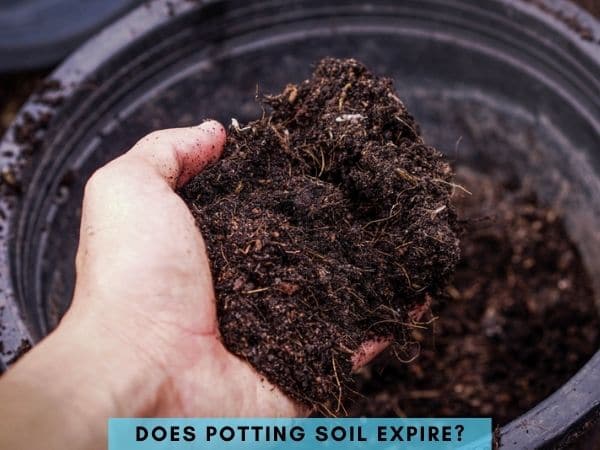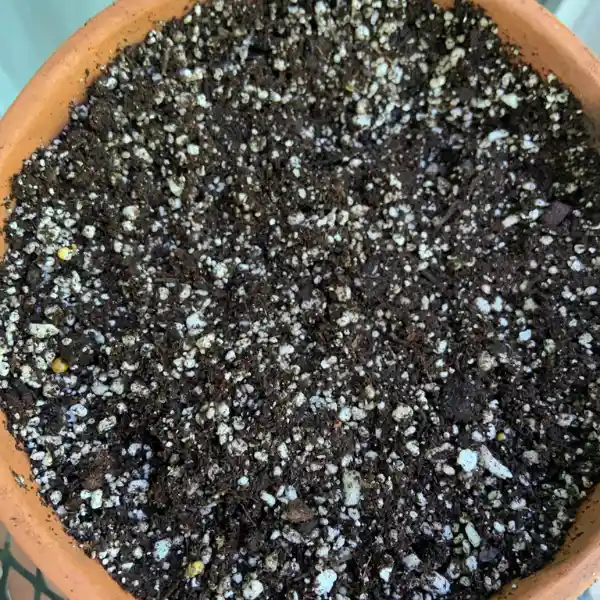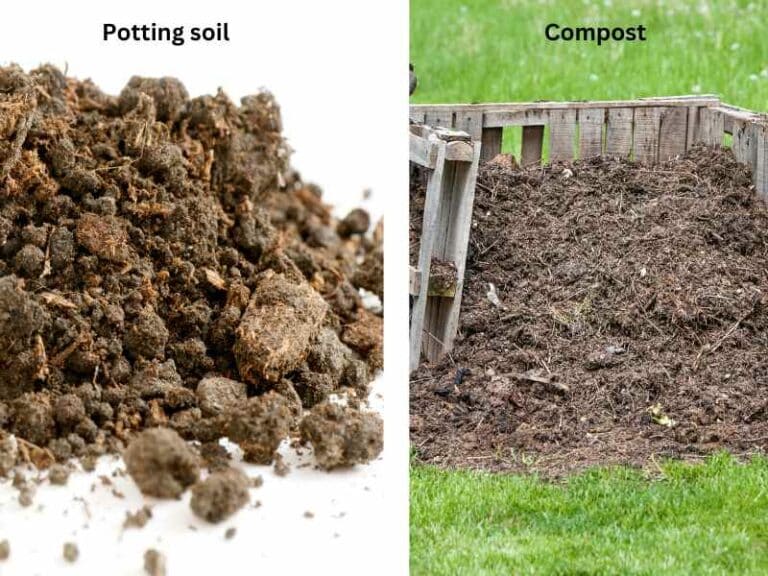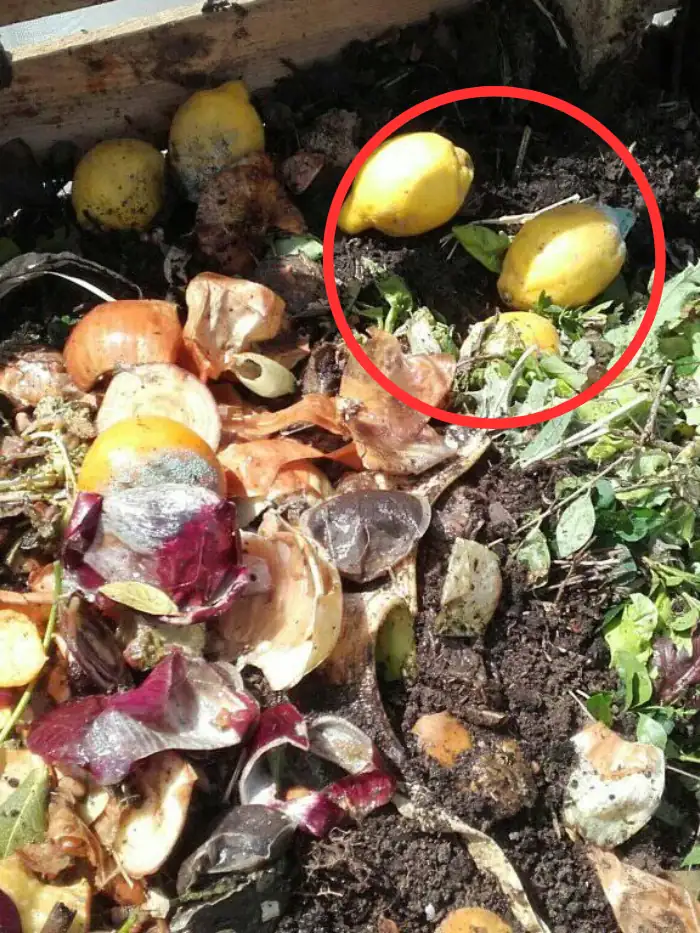Are Mushrooms Decomposers? Benefits in Gardening + Composting
Looking for a way to organically boost plant growth in your home garden? Tired of toxic chemicals from artificial fertilizers leeching into your plants and killing them off? Well, time to consider using mushroom compost. But are mushrooms decomposers or producers?
Mushrooms are decomposers because like other fungi, they break down dead and decaying matter to make their own food. Mushrooms make a network of mycelium that extends deep into the soil to decompose dead matter with their special enzymes, recycling nutrients and making them available for plants.
This all-natural fertilizer option depends on the decomposing properties of mushrooms to break down compost material into usable nutrients for your garden plants.
Are mushrooms decomposers or producers?
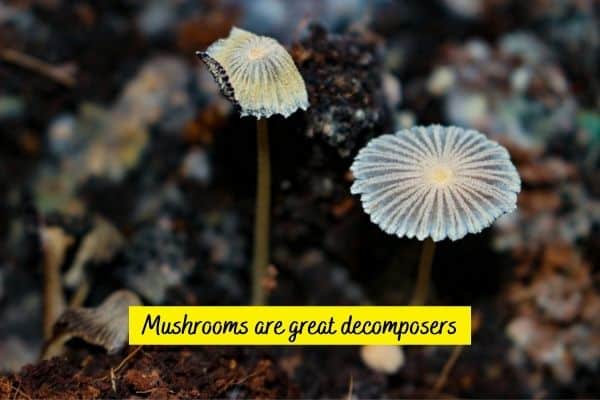
Mushrooms – being fungi – are classified as primary decomposers in the ecosystem. Decomposers are crucial in the recycling of organic matter within the ecosystem because they break down decaying organic matter into absorbable nutrients.
The two primary types of decomposers include fungi and bacteria. Unlike plants, fungi lack chlorophyll and can only make their own food by decomposing dead plant and animal matter.
Multiple species of fungi- mushrooms included- excrete enzymes that break down dead and decaying organic material into usable compounds.
Decomposers vs Detritivores – What’s the Difference?
There are some similarities between decomposers and detritivores; for instance- they feed on similar diets. Yet, despite these similarities, there’s actually a distinguishing difference between the two. Detritivores can be considered as a subset of decomposers.
While decomposers like fungi and bacteria break down organic material into usable nutrients, detritivores aid the decomposition process by actually feeding on dead/decaying plant and animal material.
By eating into the dead organisms, detritivores ensure that they’re more exposed, thus unraveling more dead matter for the decomposers to break down.
Common examples of decomposers include fungi like mushrooms and toadstools. Meanwhile, common detritivores include millipedes, woodlice, and dung flies.
Here’s a list of more decomposers in a terrestrial ecosystem:
| Worms | Dung beetles |
| Snails | Termites |
| Millipedes | Protozoa |
| Bacteria | Pillbug |
| Slime mold | Saprobe |
How do mushrooms help decomposition?
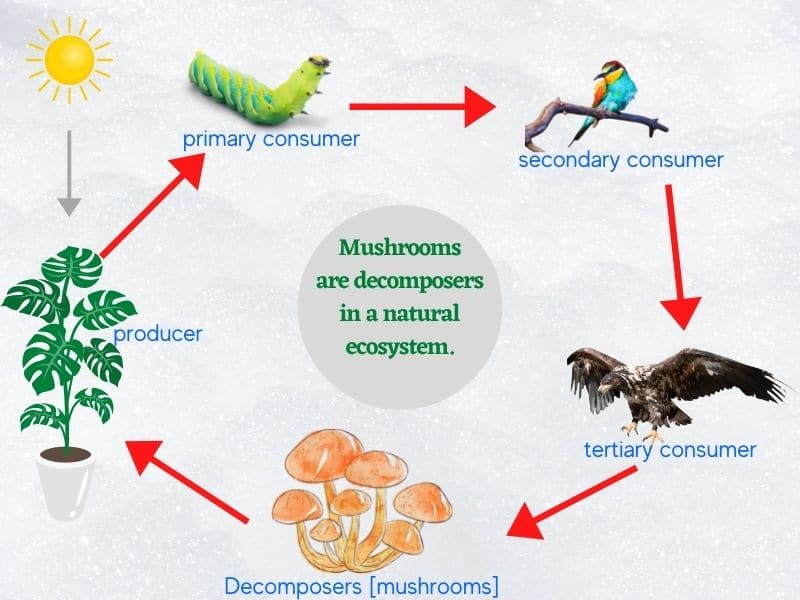
Mushrooms are a type of fungi. Fungi are considered heterotrophs since they’re incapable of synthesizing their own food and have to feed on other organisms to survive.
Mushrooms decompose decaying organic material, consequently feeding off the resultant absorbable nutrients.
Fungi mycelium have hyphae (root-like nodes) that break down dead plant and animal matter.
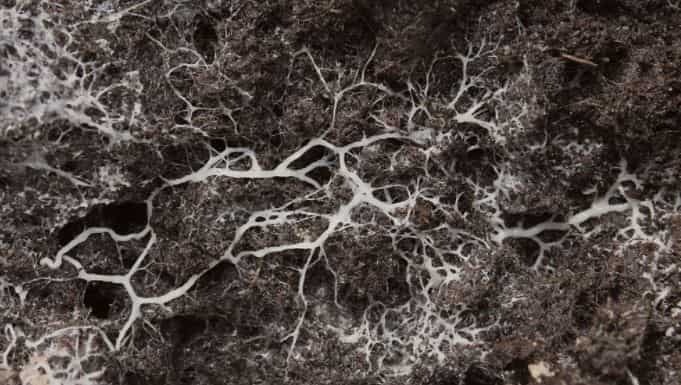
Mushrooms sprout from fungi mycelium and are the only parts of the organism that appear above ground. Whenever mushroom sprouts and disperses its spores into a new location, the spores tend to broadcast their hyphae underground to locate dead organic material.
Thus, the cycle is completed and the decomposition process sustains itself in this way.
Mycelium hyphae are more effective decomposers compared to bacteria, as they can break down even the inner layers of hardened plant material like wood.
For some mushroom varieties, the enzymes that they secrete are powerful enough to break down even the cell walls of trees.
In a nutshell, mushrooms aid decomposition by playing the role of preliminary decomposers, after which detritivores can come in and feed off the already decomposed material.
Benefits of mushrooms in gardening and composting
Mushroom compost is a popular mulching option for boosting plant growth. It refers to natural fertilizer made from mixing up animal manure with mushroom spores to encourage the sprouting of mushrooms. Using mushroom compost as fertilizer for your backyard gardening needs offers the following benefits:
Plant Nourishment
Mushroom compost attracts beneficial fungi into the soil, which then slowly break down organic matter into nutrients that your garden plants can use up. With mushroom compost as mulch, there’ll probably be no need to fertilize your plants.
Topdressing
There are multiple ways in which you can apply mushroom compost to your garden plants. For instance, you can apply it as top-dressing around the plants. Alternatively, you can dig it into the seedbed right before you plant your veggies.
Organic fertilizer
Mushroom compost is an organic fertilizer that won’t leave any harmful chemicals lurking in your soil.
Facilitates moisture retention
When you use mushroom compost as mulch, it will help the soil on which your plants grow to hold moisture for longer, consequently helping you avoid underwatering issues like wilting and leaf yellowing.
This comes in handy- especially during the warmer seasons- as you don’t have to water your garden plants as frequently as you may have had to if you hadn’t applied the mushroom compost.
Your garden plants stand to benefit more from soil that can hold water for long, because constant shifts from dry to wet conditions due to frequent watering can hamper plant growth.
Help with pests and weed control
Mushroom compost is usually steam-sterilized to keep off pests and weeds. As such, you’ll have healthier plants that are disease-free and weed-free. What’s more, it also boosts the plant’s capability to ward off viral infections.
Preventing soil compaction
Mushroom compost helps prevent the soil surface from becoming crusty and compact due to precipitation and foot traffic. This helps maintain soil drainage such that the plants are not affected by the presence of excess moisture in the soil.
Excess water that can’t be drained out fast enough due to soil compaction leads to root decay by inhibiting oxygen supply to the roots.
References
- Lumen Learning: The Ecology of Fungi
- Tina Dreisbach, USDA: Importance of Fungi in Forest Ecosystems


